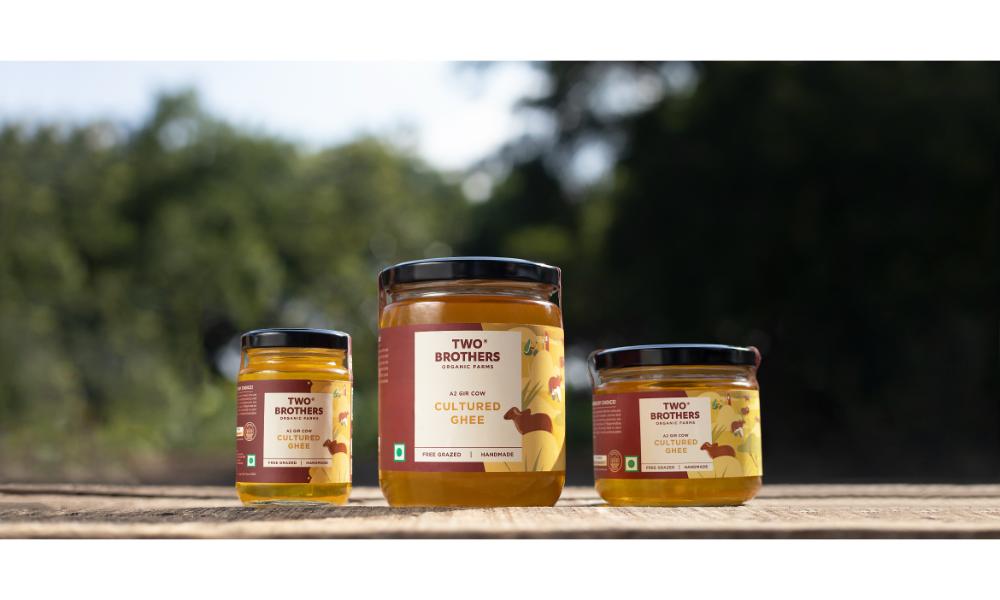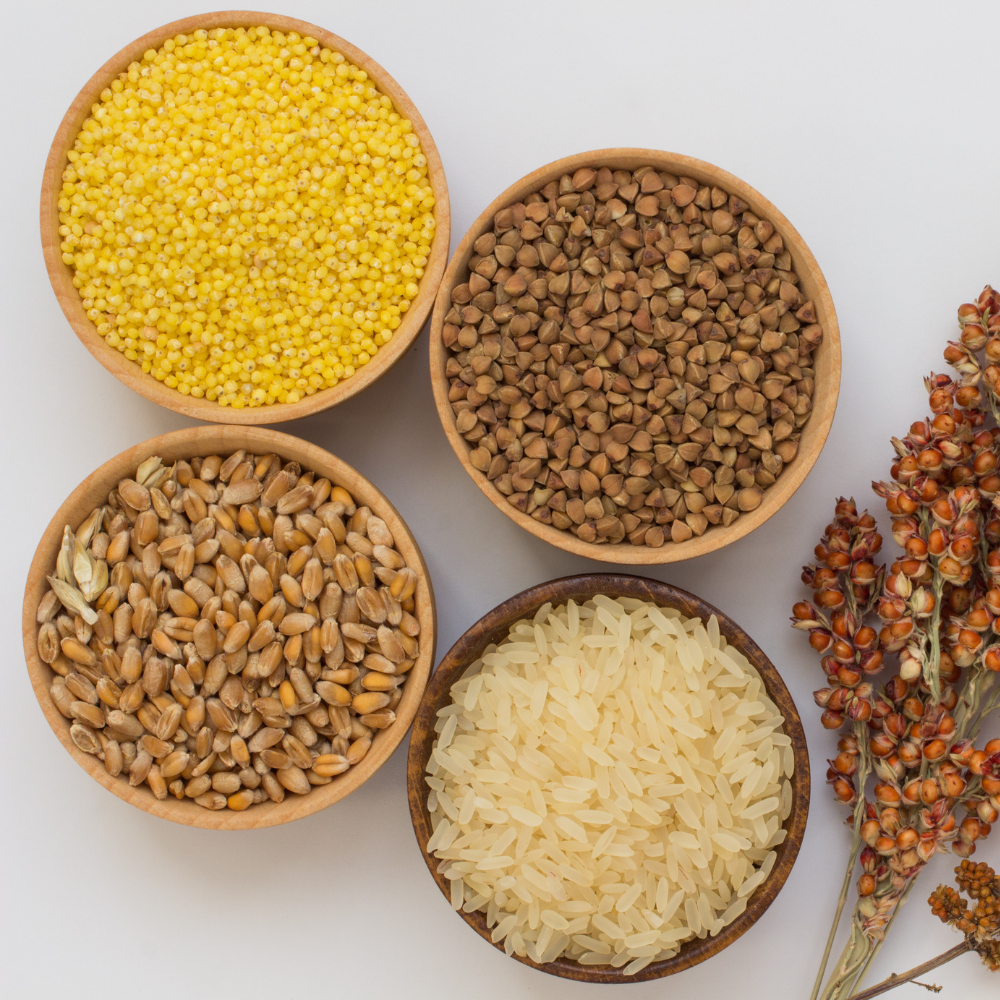Are you a new parent looking for nutritious and healthy food options for your precious bundle of joy? Look no further! Your good old ragi perfectly fits the bill! Yes! Ragi, also known as finger millet, is a superfood that comes packed with numerous health advantages.
There are various nutritional benefits of ragi for babies! What are they? Well, this blog is here to explore the wonders of introducing ragi to your little one's diet. So, without any further ado, let's dive right in and learn about the numerous ragi benefits for babies and how to make ragi for them in a super delicious way.
What is the Best Way and Time to Give Ragi to Babies?
After consulting with your paediatrician, you can begin introducing ragi to your baby's diet as early as six months. Start with a small amount and gradually increase it as your baby becomes acclimated to the flavour and texture.
Begin by making a smooth and runny porridge using ragi flour and breast milk or formula milk. You may experiment with different ragi recipes as your baby develops to enjoy the diversity of flavours and textures.
Top 9 Ragi Health Benefits for Babies
There are numerous health benefits of ragi. You would want to introduce ragi into your baby's diet today after knowing these incredible 9 health benefits it offers.
- Provides High Nutritional Value: Ragi is high in critical minerals such as calcium, iron, and fibre, making it an ideal baby food that offers wholesome nutrition to your precious one.
- Promotes Your Baby's Appetite: Ragi is readily digestible and can help increase your baby's appetite. It ensures they acquire the nutrients they need for healthy growth and development.
- Improves Bone Health: Calcium is essential for strong bones and teeth, especially in growing years. Ragi is high in calcium, which promotes good bone growth in infants.
- Aids in Improving Protein Consumption: Protein is required for cell development and repair in your baby's body. Ragi is high in protein, making it an excellent complement to their diet.
- Prevents Anaemia: Ragi is high in iron, which helps prevent iron deficiency anaemia in babies. It provides an appropriate quantity of iron for healthy blood formation.
- Assists Digestion: One of the most regarded ragi benefits for babies is that it assists in healthy digestion and avoids constipation. Ragi has a lot of dietary fibre. Therefore, it is known to support a healthy digestive system from the beginning.
- Promotes Healthy Weight: Ragi is a wonderful choice if you want your toddler to acquire a healthy weight. Its excellent nutritional content and good fats help your child to grow.
- Enhances Immunity: Because of its antioxidant characteristics, ragi is believed to enhance the immune system. Regular ingestion helps boost your baby's immunity and keep them healthy.
- Works as Natural Relaxant: Tryptophan, an amino acid that promotes relaxation and improved sleep, is found in ragi. So, including ragi in your baby's diet helps them sleep better at night.
Ragi Recipes for Babies
Not only ragi is rich in essential nutrients, but it is also easy to digest, making it an ideal choice for your baby's delicate tummy. So, let's discover 2 delicious ragi recipes that your little one will surely love – They are ragi porridge and malt!
Ragi malt is a healthy drink made from ragi powder or flour or sprouted ragi flour, water, and milk. Ragi porridge is also made with the same ingredients, but it is denser.
-
Ragi Porridge Recipe for Babies
Ragi porridge is a classic and nutritious recipe that is perfect for introducing solids to your baby's diet. Here's a simple step-by-step recipe to prepare ragi porridge for your little one:
- Take 2 tablespoons of ragi flour and mix it with 1 cup of water or milk.
- Stir well to ensure there are no lumps.
- Cook the mixture on low heat until it thickens to a porridge-like consistency.
- Allow it to cool before feeding it to your baby.
Health Benefits of Ragi Porridge for Babies
Ragi porridge is an excellent source of energy for your little one. It provides the necessary carbohydrates and proteins to fuel their growth and development. Additionally, the high fibre content in ragi porridge aids in digestion and promotes a healthy gut.
The calcium and iron present in ragi porridge contribute to strong bones and a healthy blood supply, respectively.
-
Ragi Malt Recipe for Babies
Ragi malt is another delightful recipe that your baby can enjoy. Here's how you can make ragi malt for your little one:
- Take 2 tablespoons of ragi powder and mix it with 1 cup of water or milk. It would be much better if you could get some sprouted ragi malt flour to make the malt.
- Heat the mixture on low flame and stir continuously until it gets a shake-like thickness.
- Add a pinch of cardamom powder for flavour.
- Allow it to cool before serving it to your baby.
Health Benefits of Ragi Malt for Babies
Ragi malt is not only delicious but also packed with nutrients. It is an excellent source of energy for babies. The high iron content in ragi malt helps prevent anaemia. At the same time, the presence of essential amino acids supports healthy growth and development.
Ragi malt is also known to improve digestion and boost the immune system, keeping your baby healthy and happy.
Prepare Ragi Malt Using TBOF Ragi Malt Powder—The Best Ragi Powder for Babies!It is a High-Quality Ragi Powder Specially Formulated for Babies, Ensuring Maximum Nutrition and Taste. Give Your Baby The Best With TBOF Ragi Malt Powder!
FAQs
-
Can you give ragi to babies daily?
Yes, you can give ragi to babies daily. It is a nutritious grain that provides several health benefits for babies.
-
Does ragi increase weight in babies?
Ragi does not directly cause weight gain in babies, but it aids in the overall development of the body. It is a healthy carbohydrate that can be included in a balanced diet for babies.
-
Is ragi suitable for babies in summer?
Yes, ragi is suitable for babies in summer. It is a cooling grain and can be prepared as a refreshing malt or porridge to keep babies hydrated.
-
How much ragi should I give my 6-month-old?
It is generally recommended to start with small quantities of ragi for babies around 6 months old. Begin with around 1-2 tablespoons of ragi and gradually increase the amount as per your baby's acceptance. Consulting with your paediatrician to determine the appropriate portion size for your baby is also a good idea.
-
Does ragi cause gas in babies?
Ragi is generally well-tolerated by babies and does not commonly cause gas. However, every baby is different, and some may have individual sensitivities. If you notice any discomfort or gas-related issues, consult your paediatrician.
-
Can you add ghee to ragi porridge?
Yes, you can add ghee to ragi porridge. Ghee adds flavour and nutrition to the porridge. However, start with a small quantity and gradually increase it as per your baby's tolerance.
To summarise, introducing ragi as baby food is a beautiful way to provide them with essential nutrients and promote their overall health. The two ragi recipes mentioned—ragi porridge and ragi malt—are not only delicious but also offer numerous health benefits for your little one. Try these recipes today, and watch your baby enjoy the goodness of ragi.
Remember, always consult with your paediatrician before introducing any new food to your baby's diet. Happy cooking and happy parenting!










